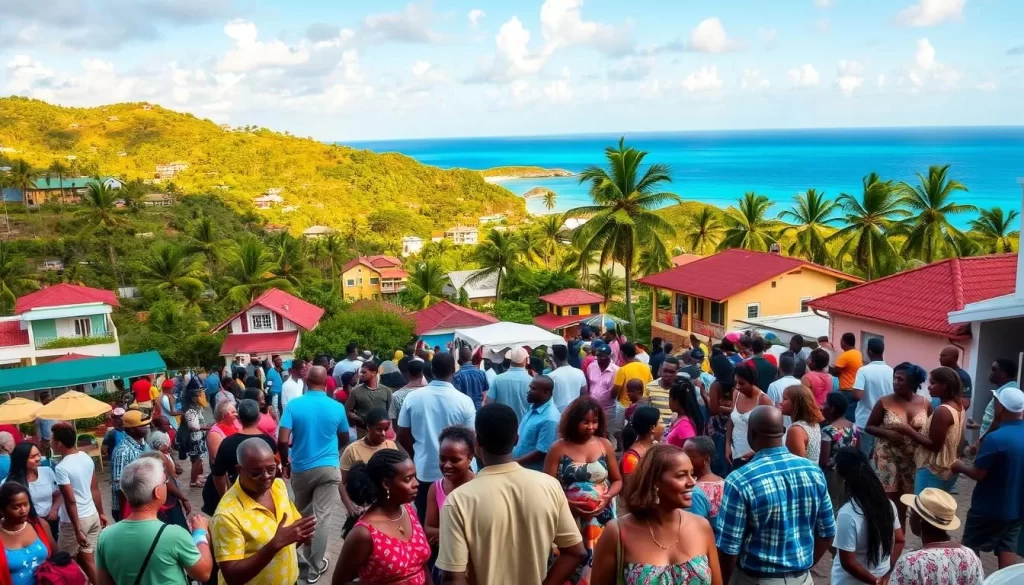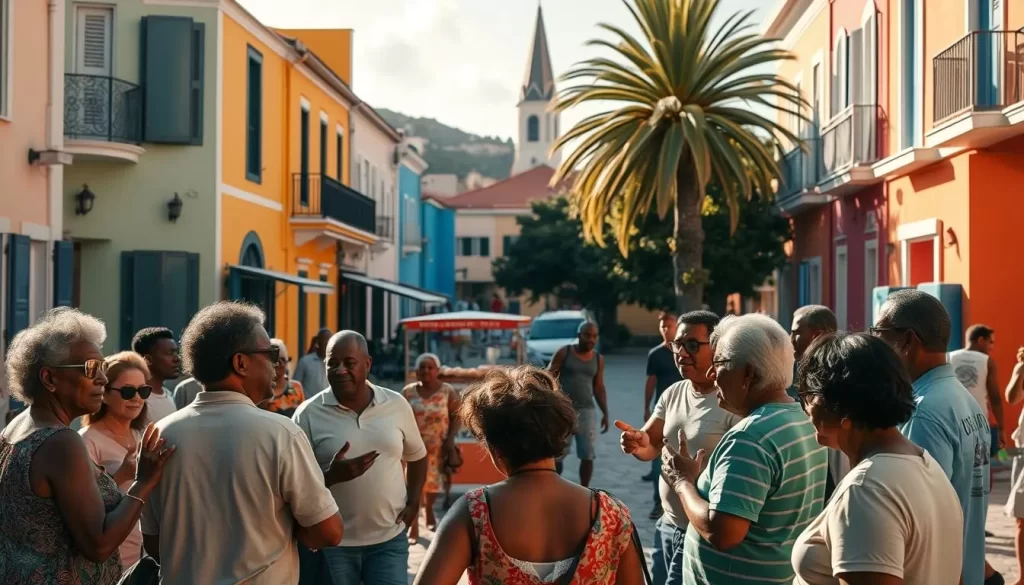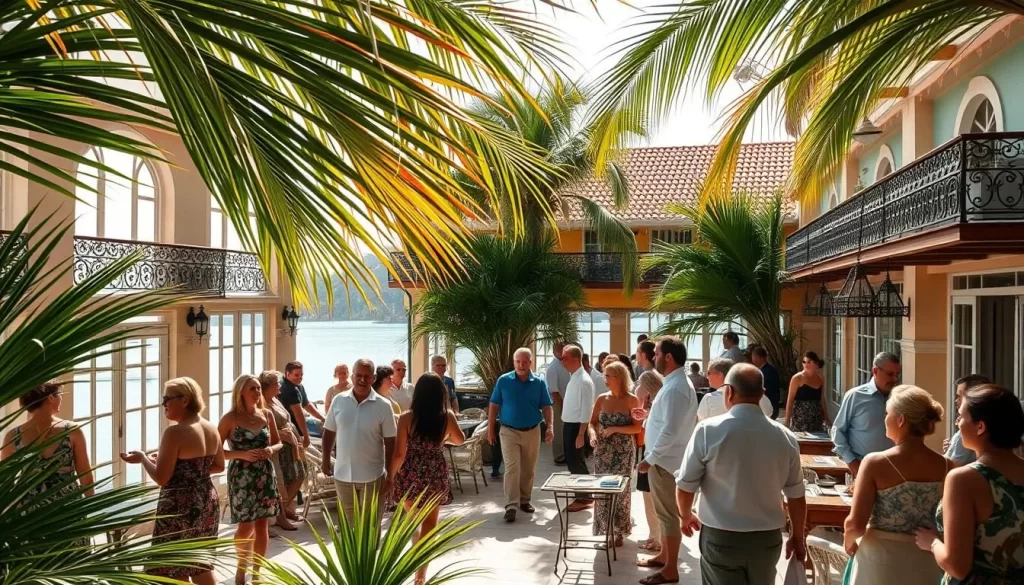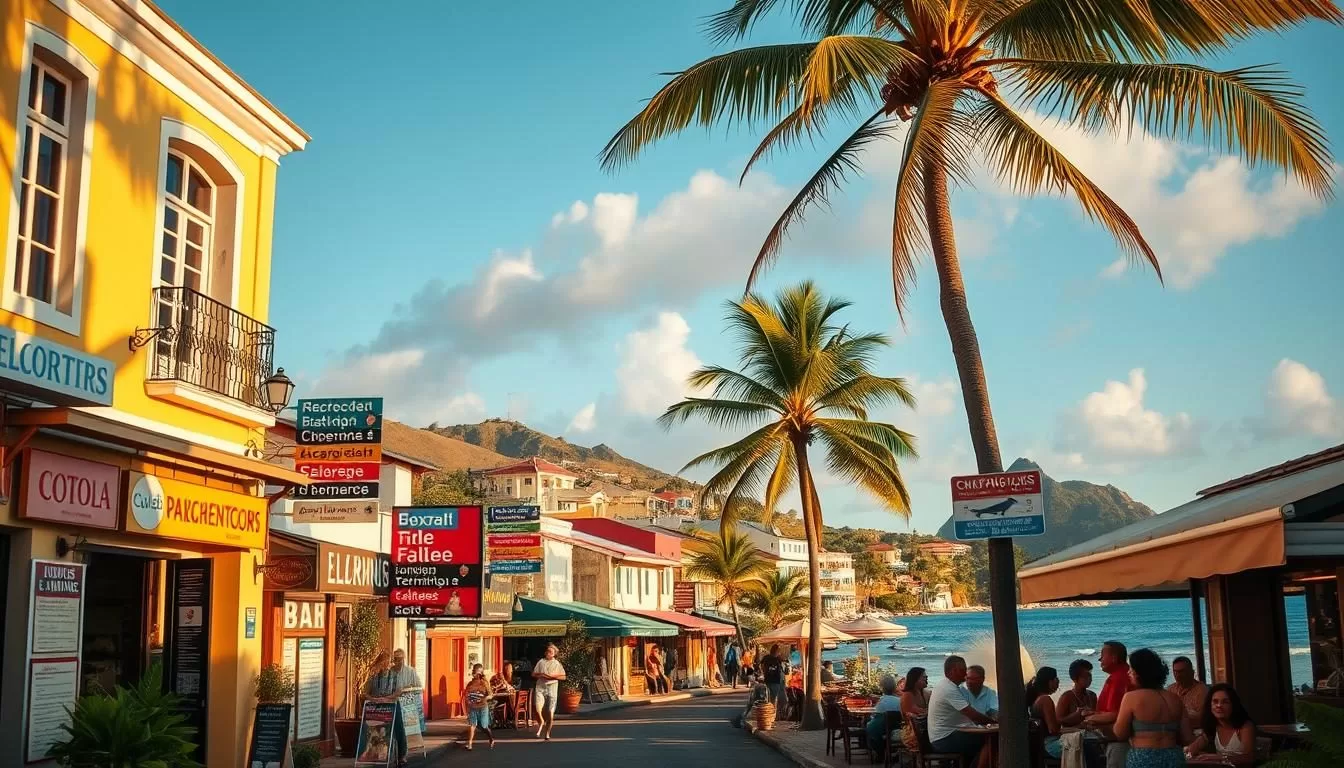✓ Accommodations✓ Flights✓ Rental Cars
This Caribbean gem is known for its stunning beauty and vibrant culture. One of its most fascinating aspects is its linguistic diversity. French serves as the official language, reflecting the island’s deep ties to France. However, you’ll also hear English and French Creole in everyday conversations.
The island’s multilingual heritage adds a unique layer to its identity. Whether you’re exploring local markets or relaxing on pristine beaches, language plays a key role in connecting with the community. This blend of influences creates a welcoming atmosphere for visitors.
Ready to dive deeper into the island’s linguistic charm? Let’s explore how these languages shape its culture and daily life.
Overview of St. Barts’ Linguistic Heritage
The linguistic heritage of this Caribbean destination is as rich as its history. Over centuries, the island has seen a blend of cultures that shaped its unique language landscape. From French colonization to Swedish influence, each era left its mark.

Historical Influences on Local Language
French colonization in the 17th century established French as the dominant language. Later, Swedish control introduced new cultural elements. These shifts created a foundation for the island’s multilingual identity.
Historical records show how immigrant communities added their voices. Portuguese settlers, for example, brought their dialects, enriching the local language mix.
Cultural Diversity and Language Evolution
Today, the island thrives as a hub of cultural diversity. Tourism has played a key role in blending global influences with local traditions. This evolution is evident in everyday interactions, from markets to hotel lobbies.
Visitors often find a warm, multilingual environment. Whether you’re chatting with locals or exploring hidden gems, language connects you to the heart of the island.
St. Barts: Official and widely spoken languages
The linguistic landscape of this tropical paradise reflects its rich cultural tapestry. French serves as the official language, anchoring administrative functions and cultural events. This connection to France is deeply rooted in the island’s history and governance.

The Role of French as the Official Language
French is the backbone of formal communication here. From government offices to schools, it’s the primary medium. Local festivals and events also celebrate this linguistic heritage, offering a glimpse into the island’s identity.
Embracing English and French Creole in Daily Life
English is widely understood, especially in areas frequented by tourists. This makes it easy for you to navigate the island, whether you’re dining at a restaurant or booking a stay at a luxury hotel. French Creole, on the other hand, adds a local flavor to everyday conversations.
In neighborhoods, you’ll hear the rhythmic tones of Creole, a testament to the island’s cultural diversity. Boutique hotels and fine dining spots often employ multilingual staff to cater to international visitors. This inclusive approach ensures everyone feels welcome.
The blend of these languages creates a unique environment. It bridges the gap between tradition and modernity, making your experience here both enriching and seamless.
Enhancing Your Visit Through Local Language and Culture
Connecting with the heart of the island begins with a few simple words. Even a basic greeting like “Bonjour” can make a big difference. It shows respect for the local language and helps you build rapport with residents.

Essential Phrases to Connect with Locals
Learning a few key phrases can enrich your experience. Try these to start conversations:
- “Merci” (Thank you) – A polite way to show appreciation.
- “S’il vous plaît” (Please) – Essential for polite requests.
- “Où est…?” (Where is…?) – Helpful for navigating the island.
These simple words can make your interactions more meaningful and enjoyable.
Practical Etiquette for Tourists
Respecting local customs is just as important as speaking the language. Always greet people before asking questions. A smile goes a long way in creating a positive impression.
When dining or shopping, take your time. Rushing can come across as impolite. Embrace the relaxed pace of life on the island.
“Language is the road map of a culture. It tells you where its people come from and where they are going.”
By embracing these tips, you’ll not only navigate the island with ease but also create lasting connections. For more insights on cultural experiences, check out this travel guide.
Multilingual Interactions in Hotels, Restaurants, and Beyond
From luxury hotels to fine dining, communication here is seamless and welcoming. The blend of French, English, and French Creole ensures you’ll feel right at home. Whether you’re checking into a hotel or ordering at a restaurant, the staff’s multilingual skills make every interaction smooth.

Luxury accommodations pride themselves on offering personalized service. Staff members often switch effortlessly between languages to meet your needs. This attention to detail creates a comfortable and culturally enriching experience for every guest.
Communicating Effectively in a Luxury Setting
Navigating menus or making reservations is a breeze. Many establishments provide bilingual options, ensuring clarity and convenience. When engaging with concierge services, a few familiar phrases can enhance your experience.
Here are some practical tips for your stay:
- Use “Bonjour” to greet staff and start conversations on a friendly note.
- Ask for recommendations in English if you’re unsure about local dishes.
- Don’t hesitate to request translations for menus or directions.
The island’s approach to multilingual customer service ensures every interaction is pleasant and effortless. This commitment to communication reflects its warm and inclusive culture.
Conclusion
Exploring the linguistic charm of this island reveals a rich tapestry of history and culture. French stands as the backbone of communication, while English and French Creole add depth to everyday interactions. This blend of language reflects centuries of historical influences, creating a welcoming environment for visitors.
Understanding local language and customs can significantly enhance your experience. Even a few simple phrases can open doors to meaningful connections and cultural insights. Whether you’re staying at a luxury hotel or dining at a local restaurant, the island’s multilingual charm ensures a seamless and enriching visit.
Ready to dive deeper? Embrace the unique linguistic diversity and discover all that this destination has to offer. Your journey here promises to be as vibrant as its culture.
The above is subject to change.
Check back often to TRAVEL.COM for the latest travel tips and deals.






